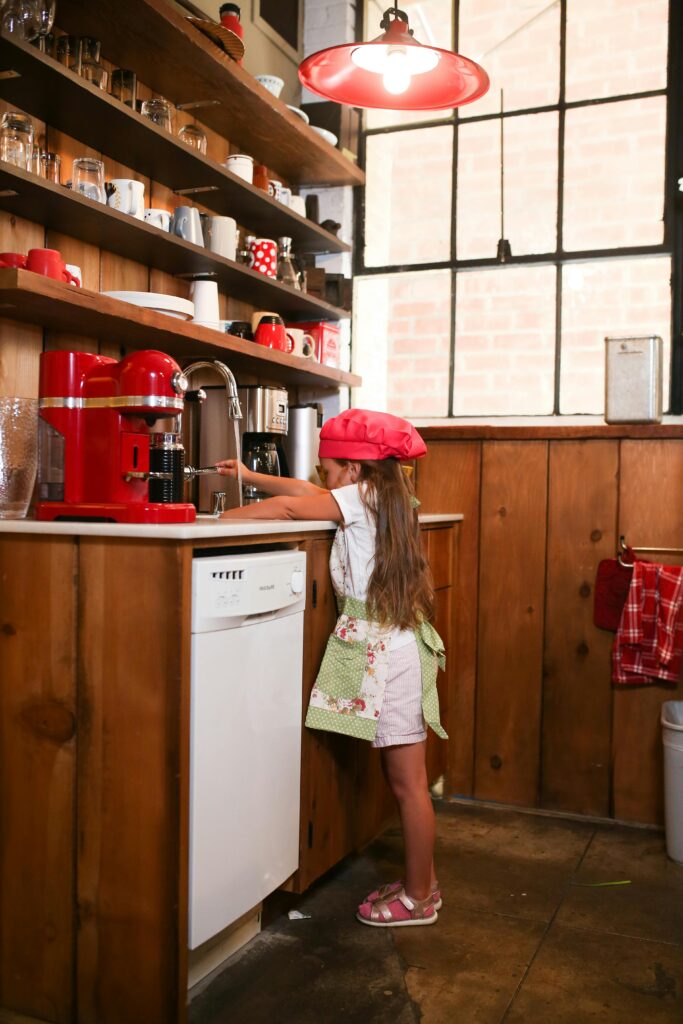We all want our children to grow into resilient, confident adults, but building resilience in kids is often about walking a fine line. In today’s world of constant connectivity and over-scheduling, the concept of tough love might seem out of place. But let’s be clear—tough love isn’t about being harsh or punitive. It’s about building resilience in kids by giving them the tools to face life’s challenges on their own terms, without us fixing every problem for them.
This post digs into practical strategies for building resilience in kids, balancing support with independence, and why the toughest love is often the one that allows your kids to struggle a bit to learn and grow.
What Is Tough Love in Parenting?
Tough love is all about setting boundaries, allowing natural consequences, and giving kids the space to develop problem-solving skills on their own. It’s saying “no” to overindulgence and “yes” to letting them learn how to be resourceful and adaptable in a world that won’t always cater to them.
It can be challenging to watch your child fail or struggle, but it’s often these very experiences that foster resilience. Tough love doesn’t mean turning your back; it means stepping aside just enough for them to figure things out.
The Benefits of Building Resilience in Kids Through Tough Love
- Learning to Overcome Adversity
Kids need to learn that sometimes, they won’t get the outcome they want, no matter how hard they try. The ability to cope with failure and disappointment is a fundamental part of developing resilience. For example, allowing your child to miss out on a party because they didn’t finish their homework isn’t about being mean—it’s about showing them that actions have consequences. This approach helps them understand the connection between effort and outcome. - Fostering Independence
Resilience grows from having the confidence to face challenges independently. When we solve every problem for our kids, we rob them of the chance to learn how to make decisions, deal with consequences, and grow from those experiences. Giving them age-appropriate responsibilities, like making their own lunch or saving up for a new toy, builds their capacity for independence. Kid-Friendly Chore Chart: Consider adding a Kid-Friendly Chore Chart that encourages responsibility and helps them take ownership of daily tasks, making them more independent. - Emotional Regulation
Resilient kids aren’t born; they’re made through practice. Allowing your children to feel upset and work through their emotions helps them learn emotional regulation. Tough love means not swooping in to soothe every frustration. Instead, sit beside them, encourage deep breathing, and let them find their way back to calmness. - The Ability to Problem-Solve
A crucial part of resilience is being able to navigate through challenges without falling apart. Encourage your children to brainstorm solutions to their problems, rather than stepping in immediately with an answer. For example, if your child forgets their lunch, let them come up with a way to make up for it (like borrowing lunch money from a friend or making do with what’s available). It’s uncomfortable but also empowering. STEM Problem-Solving Kit: A STEM Problem-Solving Kit for kids aged 8+ can give them hands-on experience with challenges that require creative thinking and independent problem-solving.
Practical Ways to Incorporate Tough Love Into Daily Life
- Setting Boundaries and Sticking to Them
It’s easy to say “yes” when they beg for more screen time, but resilience requires learning how to cope with “no.” Set boundaries around screen use, bedtime, and chores, and stick to them. Kids need to know where the limits are and that those limits aren’t arbitrary. - Allow Natural Consequences
Sometimes, the best lessons are the ones life teaches for us. If your child refuses to bring a jacket on a chilly day, let them experience what it feels like to be cold. It’s a minor discomfort but a valuable lesson in listening and responsibility. Natural consequences teach kids how to better anticipate outcomes and make informed choices. - Encourage Age-Appropriate Risk-Taking
Resilience grows from doing things that are a little bit scary or challenging. Let them climb a tree, try a new sport, or spend the night away from home. These experiences show them that they’re capable of more than they think and that it’s okay to feel nervous or uncertain. Kids learn more from the risks they take than the comforts they’re given. If you’re interested in reading more about how letting kids take age-appropriate risks can be beneficial, check out Benign Neglect: Why Letting Your Kids Be Bored Might Just Make You Mum of the Year. - Model Resilience Yourself
Children watch what we do more than they listen to what we say. Show them resilience in your own life. If you’re having a rough day, talk them through how you handle it. “Mum’s feeling a bit stressed, but I’m going to take a deep breath, make a list of what I can do, and handle one thing at a time.” By modeling resilience, you teach them how to cope with their own setbacks.
Why Tough Love Is Hard But Worth It
It’s natural to want to protect our kids from discomfort, but the real world is filled with challenges that we can’t shield them from forever. Tough love helps prepare them for that reality. They learn that failure is not the end; it’s just a chance to start again. They understand that being resourceful, self-reliant, and emotionally strong will serve them better than avoiding every struggle.
Final Thoughts: Tough Love for the Win
Building resilience in kids isn’t about being a strict disciplinarian or a soft-hearted pushover; it’s about walking the line between supporting them and letting them stand on their own feet. Tough love means being there when they truly need you but giving them the space to learn their own lessons.
It might be uncomfortable at first, but it’s the kind of discomfort that breeds growth. At the end of the day, we want our kids to grow up to be adults who can handle what life throws at them with confidence and courage—and that journey starts here, with a little bit of tough love.


